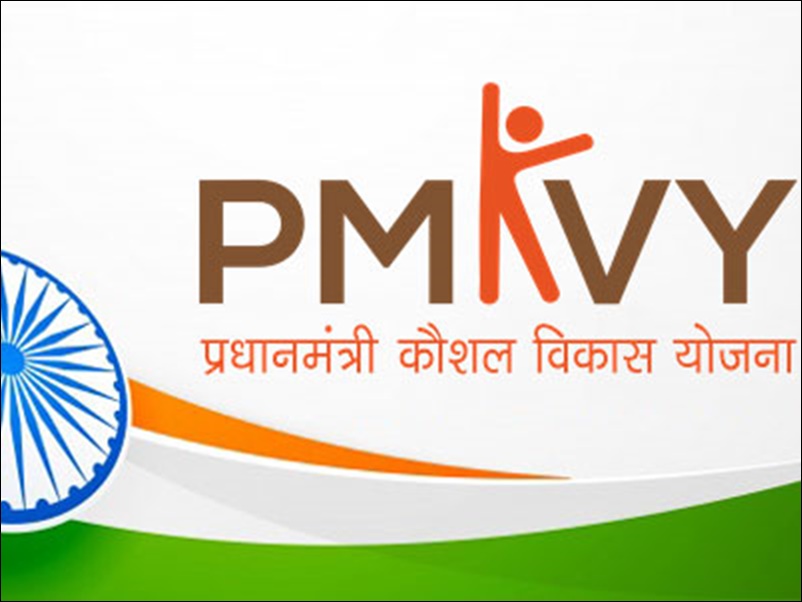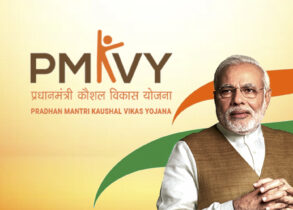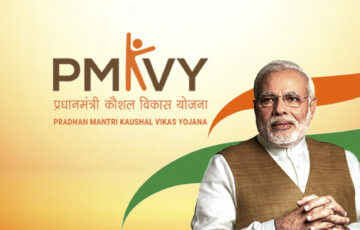Pradhan Mantri Kaushal Vikas Yojana- 1.0
Relevance
- GS Paper 2 Important aspects of governance, transparency and accountability, e-governance, applications, models, successes, limitations, and potential;
- Government policies and interventions for development in various sectors and issues arising out of their design and implementation.
- Tags: #pmkvy #scheme #currentaffairs #upsc
What is PMKVY Scheme?
- In an effort to empower the youth and further advance the Skill India Mission with the goal of positioning India as a global skill hub, the Ministry of Skill Development and Entrepreneurship (MSDE) initiated Pradhan Mantri Kaushal Vikas Yojana (PMKVY) in 2015.
- It sought to achieve this by offering free, short-term skill training programs and motivating participants through monetary rewards upon successful skill certification. The overarching objective was to enhance both the industrial sector and the employability of the country’s youth.
Various Phases of Schemes
Phase I: During its initial phase in 2015-16, PMKVY successfully trained 19.85 lakh candidates.
Phase II: Following the triumph of the pilot PMKVY, the program was expanded and improved under PMKVY 2016-20 i.e. PMKVY 2.0.
- This expansion included a broader range of sectors and geographical coverage, while also aligning more closely with other government initiatives such as Make in India, Digital India, and Swachh Bharat.
- The scheme adhered to Common Cost Norms and had a total budget allocation of Rs 12,000 Crores.
Phase III: The third phase known as PMKVY 3.0, on January 15, 2021.
- It is designed to stimulate and promote skill development across the nation, catering to the evolving needs of various industries, fulfilling market requirements, and providing training in service sectors and emerging job roles that have gained significance in light of the COVID-19 pandemic.
- Drawing from the experiences of PMKVY 1.0 and PMKVY 2.0, PMKVY 3.0 will be executed in a more decentralized structure, with enhanced responsibilities and backing from States/Union Territories (UTs) and Districts.
- District Skill Committees (DSCs), operating under the guidance of State Skill Development Missions (SSDM), will play a pivotal role in bridging the skill gap and assessing demand at the district level. The new scheme places a greater emphasis on the aspirations of Atmanirbhar Bharat and is centered around the trainees and learners.
- This scheme aims to primarily target individuals aged between 15 and 45 years.
- PMKVY 3.0 will consist of two components:
- Central Component, which will be overseen by organizations like the National Skill Development Corporation (NSDC), Directorate General of Training (DGT), and other central ministries, and
- State Component, which will be managed by the State Skill Development Missions (SSDMs) and respective departments of the States/UTs.
- The skill training will be provided under three categories, spanning the entire country:
- Short Term Training (STT)
- Recognition of Prior Learning (RPL)
- Special Project (SP)
- A significant shift in PMKVY 3.0 (2020-22) is its move from a supply-based approach to a demand-based approach. Given the disruptions caused by the COVID-19 pandemic and its impact on livelihoods, the scheme will place a strong emphasis on upskilling and reskilling, with a particular focus on future skills like industry 4.0 courses, aimed at enhancing the productivity of the existing workforce. Furthermore, the program will incorporate online and digital training modes to ensure broader coverage.
- The official conclusion of PMKVY 3.0 was in March 2022; however, due to pandemic-related delays, training activities continued into the early months of 2022-23.
- As per data available on the PMKVY website, a total of 13.72 million candidates have received training through the scheme since its inception in 2015. Among these, 11 million candidates have successfully obtained certification.
- Notably, only 2.4 million of these certified candidates have been placed in jobs, representing 22.2% of the total candidates who earned certification, as reported by the training partners.
Phase IV: In her budget speech for 2023-24, Finance Minister Nirmala Sitharaman announced the launch of the fourth phase of PMKVY, known as PMKVY 4.0. She stated that PMKVY 4.0 aims to skill hundreds of thousands of young individuals within the next three years.
- This new phase will offer courses covering a wide range of subjects, including Industry 4.0, COVID-19 related skills, artificial intelligence (AI), robotics, mechatronics, the Internet of Things (IoT), and drones.
- Establishment of 30 Skill India International Centers in various states to equip young individuals with skills for international job opportunities.
- Introduction of Direct Benefit Transfer as part of the National Apprenticeship Promotion Scheme, aiming to offer stipend support to 47 lakh youth over a three-year period.
- Expansion of the digital skilling ecosystem through the introduction of a Unified Skill India Digital platform, which will:
- Support formal skilling based on industry demand.
- Establish connections with employers, including Micro, Small, and Medium Enterprises (MSMEs).
- Provide access to entrepreneurship schemes.
| Phase | Target (in lakh) | Candidates Trained / Oriented (in lakh) |
| PMKVY 1.0 (Phase I i.e. 2015-16) | 24.00 | 19.86 |
| PMKVY 2.0 (Phase II i.e. 2016-20) | 100.00 | 109.98 |
| PMKVY 3.0 (Phase III i.e. 2020-22) | 8.00 | 4.45 |
| Total | 132.00 lakh | 134.29 lakh |
Component of PMKVY
| Short Term Training (STT) |
|
| Recognition of Prior Learning (RPL) |
|
| Special Projects |
|
| Kaushal and Rozgar Melas |
○This translates to an average of 163 candidates being selected by employers during each of these events. ○To enhance the employment prospects of candidates through Rozgar Melas, the committee has recommended boosting employer participation in these events. |
| Placement and Monitoring Guidelines |
|
| Training Partners (TPs) |
|
Mains question
Critically analyze the effectiveness and challenges of India’s skill development initiatives in enhancing youth employability and promoting economic growth.






